8 Ways to Keep Bugs Away While Camping

Camping provides opportunities to get up close with and connect with nature, the great outdoors is a great getaway to relieve stress that promotes mental and emotional health. This popular activity is enjoyed by many whether going hiking or on nature walks, enjoying scenic views, observing wildlife in their habitat and the many plant life, the sounds of birds chirping or singing so sweetly, the warm sun rays, or watching the beautiful sunset, enjoying the cool evening breeze, cooking and conversing around the campfire or a nearby stream with the sound of water flowing so gently.
It’s no wonder why family and friends look forward to this time of the year to enjoy nature in the wild, and while this might be great some unexpected, uninvited guests can become a nuisance. However, don’t allow your time outdoors to be dampened by flying or creepy crawlers. There are effective ways to bring control while enjoying and creating lasting memories.
1. Bug Repellents
Bug repellents are a great and effective way to keep bugs away, while creams and sprays can be applied to your skin, repellent sprays can be sprayed on your clothing, hat, shoes, and backpack as an added protection to deter hitchhikers for example mosquitos. Make sure that your bug spray and lotion or cream are waterproof.
2. Bug Repellent Bracelets
Another option for applying spray and location or cream repellents is wearing a bug-repellent bracelet, these bracelets work by releasing bug-repellent chemicals into the air creating a shield around you. Bug-repellent bracelets can be worn on your wrist.
3. Campfires
Campfires are a great way to ward off mosquitoes and other pests but when going to sleep these fires should be put out.
4. Mosquito Repellent Coils
Mosquito Repellent Coils are a great way to keep mosquitoes away, these coils can last for several hours.
5. Campsite Lights
If you must use lighting other than a campfire then consider the use of lights that are not bright because bright lights will attract bugs.
6. Bug Traps
Bug traps are sticky pads that can be placed in areas around your campsite to catch crawling insects.
7. Citronella Candle
The use of citronella candles around your camping site will deter bugs because of the scent these candles emit.
8. Bug Zappers
Bug zappers use ultraviolet light to attract and electrocute flying insects. Hanging a bug zapper near your campsite will greatly reduce the presence of bugs.
9. Bug Repellent Diffusers
Bug Bug-repellent diffusers are devices that release pesticides that insects hate, diffusers can work as long as 12 hours.
Common Insects You may Encounter went Camping
This list includes some common insect pests that may venture into your campsite or encounter when hiking.
Spiders, flies, mosquitoes, ticks, stinging insects, termites, cockroaches, aphids, beetles, centipedes, boxelder beetle, earwigs, millipedes, crickets, springtails, carpenter bee, carpenter ants etc….
Camping Saftey

1. Camping outdoors can be a rewarding experience and while this may be exciting remember Safety is Aways First so you want to be Safe at All Times, below are just a few safety tips when going camping in the great outdoors.
Get information- from your national park service, wildlife, or government agency about areas that are safe when planning a camping trip because there are for example snakes, bears, and other wild creatures that are very dangerous and you don’t want to cross paths with them. Get all of the information about safe areas to set up a campsite. If there are campsites with cabins that are already set up find out as much information that is needed to be kept safe while at the site. Remember to do your research and get as much information on that camping site including learning about the dos and dos don’t because you don’t want to be in violation but to comply with all of the camping rules.
2. Listen to the weather report- to determine if it’s safe to go camping because the weather can change, if the weather is favorable for camping carry a battery-operated radio that will keep you up to date with weather conditions besides the vehicle’s radio.
3. Food safety- is so, important to ensure that foods are properly stored to avoid food contamination, cooked foods and raw foods should be stored separately and placed in tight waterproof containers and stored in insulated coolers. Before food consumption thoroughly wash your hands. Make sure to follow all guidelines when it comes to food safety practices.
4. Don’t leave foods open- on tables and unattended in insecure spots that can attract wild animals, your foods should be packed in tight waterproof containers to discourage their presence.
5. Make sure to carry a first aid kit- with sufficient safe aid supplies because the goal is not only to have fun but to be safe because safety is always, always first. For persons that may have a medical condition, it’s best to get advice from your doctor or physician first before going camping and don’t forget to take sufficient medications. Persons with allergies should ensure that they carry their medication with them.
6. Practicing campfire safety- is important, one of the joys of camping is cooking around the fire while interacting with each other but fires that are left unattended can be dangerous. Fires should be small and contained in a designated area like a fire pit. Campfires should be kept as far as 15 feet from tents, trees shrubs, and other flammable material that can ignite very, very easily. No matter how small the campfire never, never leave these fires unattended. Ensure to have a full bucket of water close by and before turning in for the night (going to sleep) make sure that the campfire is put completely out. Remember safety first.
7. Skin protection- is so important especially during the summer months, on hot days try to stay out of the sun as much as possible don’t forget to use a broad-spectrum sunscreen, also wear a hat, and shades to protect your eyes and lip screen from UVA and UVB rays.
8. Protect Yourself from insects- while camping you will come across insects therefore it’s important to carry along insect repellents such as sprays and lotion that do not dry or dissolve easily. When hiking wear long pants and a long-sleeved shirt to avoid direct contact with insects. Keep an eye out, especially for ticks.
9. Staying hydrated- is a must to make sure throughout the day you’re drinking sufficient water to avoid dehydration.
Additional information
Other methods to protect yourself against bugs.
- A mosquito nets are are great way to keep bugs out, Simply spread the net over your tent to keep mosquitoes out.
- Make sure to apply bug repellent to a certain radius of the campsite to keep bugs away.
- The addition of herbs for example mint, rosemary, sage, and eucalyptus to your campfire will send bugs running because of the odor these herbs release.
- Always keep your tent door closed even if you go out for a short time to deter bugs.
- Rubbing rosemary, mint, sage, or eucalyptus on your skin acts as a natural repellent to drive insects away.
- Keeping the campsite neat and clean and properly storing leftover foods and garbage in tight-fitted containers will help to keep bugs and wild animals away.
- Bugs are attached to strong scents so avoid using scented lotions, creams, and soaps.
- Avoid the application of bug spray on irritated skin, wounds, or cuts.
- When pitching your tent avoid areas where there is stagnant water that attacks mosquitoes and other bugs.
- After each meal wash dishes and wipe down tables and chairs, clean up all food particles, and secure in concealed plastic containers. The leftover scent of food can draw pests into your campsite.
- Bugs hate the scent of garlic and onion, adding these ingredients to your foods as you cook around the campfire will keep them away.
- Smoking insects out is a great way to discourage their presence.
10 Frequently Asked Questions (FAQs)
1. What’s the best way to keep mosquitoes away while camping?
One of the best ways is to use a combination of mosquito repellent (with DEET or picaridin), citronella candles, and mosquito coils. Also, wear long sleeves and pants in the early morning and evening when mosquitoes are most active.
2. Do bug sprays really work at the campsite?
Yes! Most bug sprays work well if used correctly. Look for repellents that contain DEET, picaridin, or oil of lemon eucalyptus. Reapply or follow directions, especially if you’ve been sweating or swimming.
3. Can I use natural repellents instead of chemicals?
Absolutely! Essential oils like citronella, lavender, eucalyptus, peppermint, and tea tree can repel bugs. Apply them to your skin (diluted with a carrier oil) or use them in a spray. Just keep in mind—they may need more frequent reapplication.
4. Do campfires help keep bugs away?
Yes, they do! Bugs, especially mosquitoes, don’t like smoke. A smoky campfire can act as a natural deterrent. For extra power, toss in sage or rosemary—bugs hate the smell.
5. Should I keep my tent closed during the day?
Always! Keep your tent zipped up at all times—even when you’re just stepping away for a minute. Bugs love cozy places like sleeping bags and gear. You don’t want any unwelcome visitors waiting for you at bedtime.
6. What can I do to keep ants out of my campsite?
Start by keeping food sealed tight and cleaning up crumbs right away. Avoid sugary snacks out in the open. You can also sprinkle cinnamon, coffee grounds, or chalk lines around food areas—ants don’t like crossing those.
7. Does the color of my clothes matter?
Surprisingly, yes! Dark colors will attract more bugs, especially biting flies and mosquitoes. Light-colored clothing like beige, light gray, or white is ideal when heading outdoors.
8. Can I use bug-repellent gear like bracelets or clip-ons?
Sure! While they’re not always as effective as sprays, repellent bracelets and clip-on diffusers can add extra protection—especially around wrists, ankles, and hats. Use these products along with other methods for effective results.
9. What should I do if I get a lot of bug bites?
If you are bitten by bugs, wash the area thoroughly with soap and water. Then apply anti-itch cream or calamine lotion. For swelling, an ice pack helps. And try not to scratch as much as possible.
10. How can I keep bugs away from my food at the campsite?
Keep all food sealed in coolers or airtight containers. Don’t leave leftovers out, and clean up quickly after meals. Using food tents or mesh covers can also help keep flies and wasps away during mealtime.
Conclusion
Camping in the great outdoors is a great way to unwind and connect with nature, this natural therapy may be just what you need to promote mental health and physical wellness. The wonders of nature are amazing and can do us so much good in an environment that’s free offering much tranquility. So the next time you’re planning your camping trip remember to plan and do your research to ensure that your time spent outdoors will be filled with much fun, safety, and excitement creating lasting memories.



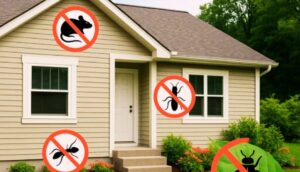

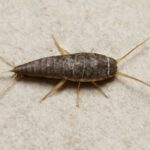
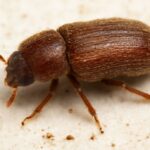
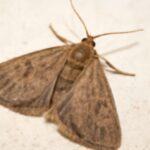
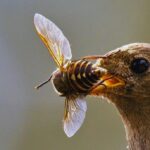

This is a comprehensive article which any newcomer to the outdoors should read. I love camping, but I live in Japan, where we have some rather unusual animals. The main danger in Hokkaido, the most northerly island of the Japanese archipelago, is bears! They are becoming a regular pest on Honshu because of climate change, disturbance to their habitat, lack of food, etc.
Do you have any advice on keeping bears at bay? We use bells here because they distract bears, but they don’t seem to be very effective these days with starving bears! I’m not sure of your location, but I’d be grateful for any recommendations you might have to repel bears!
Bears are dangerous and should be handled by those who are trained in wildlife conservation. Because bears seek a food and water source make sure that there are no containers outdoors that collect and hold water that will attract them and other rodents. Food scraps should be stored in garbage containers with tight-fitted lids to keep food sent looked in and stored in a secured area. Other than that it is best to seek professional help in your area. Remember bears are dangerous. Our safety must always come first so play it safe and call in the professionals.